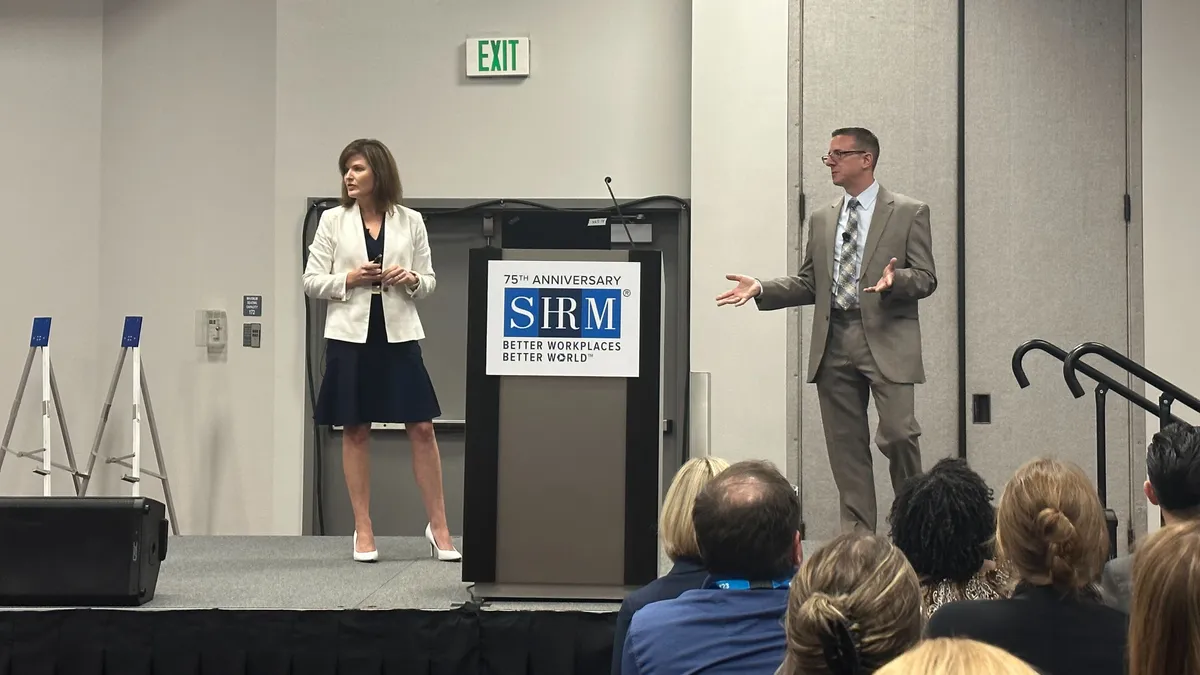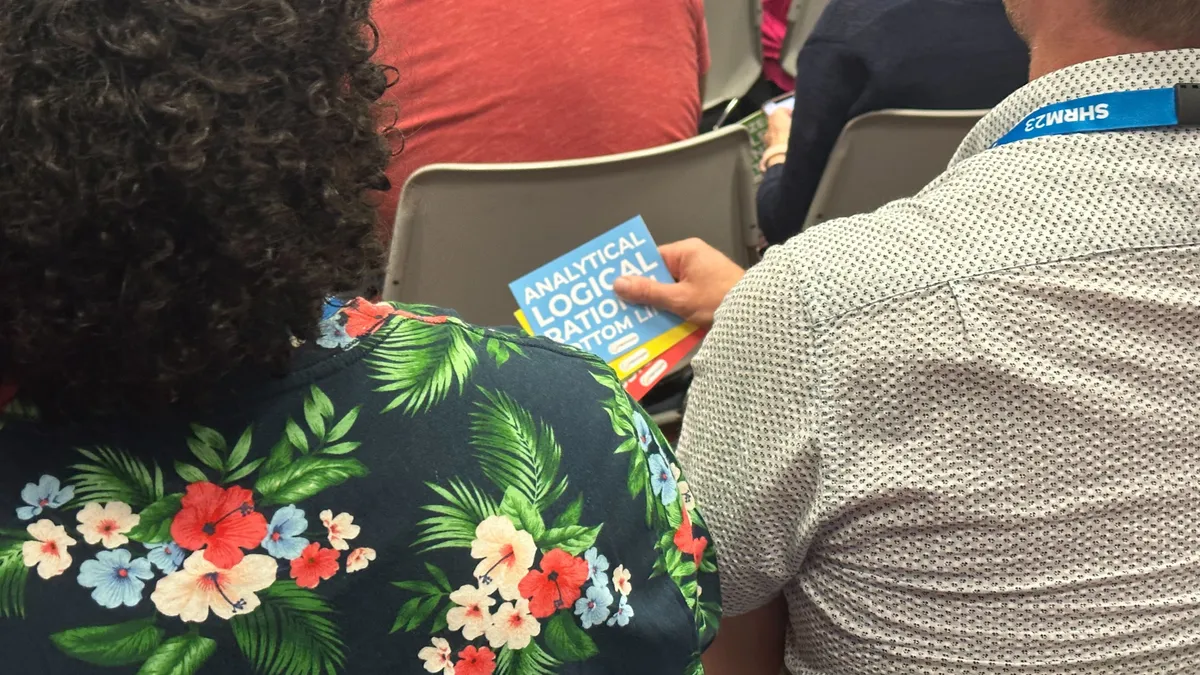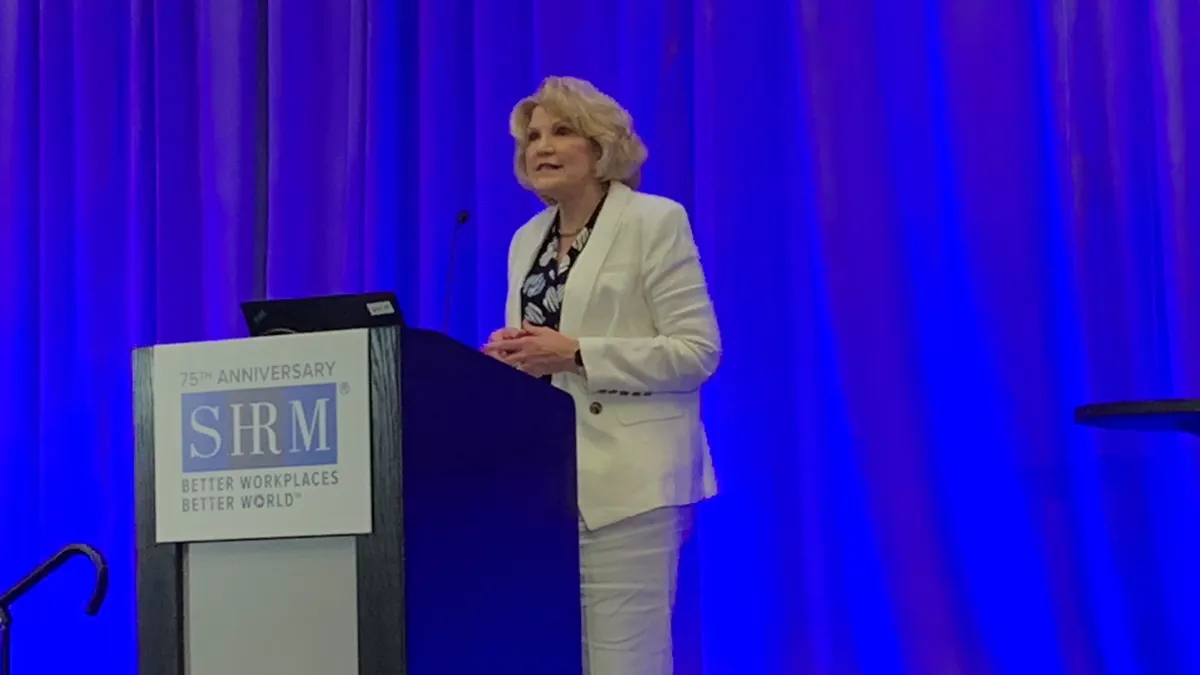LAS VEGAS — The classroom-style space at SHRM23 ran out of seats. For a repeat session titled “I Need a Mental Health Day! Handling ADA Accommodation Requests for Stress, Anxiety, and Mental Health,” the demand for the session was perhaps equal parts encouraging and troubling.
Per the National Association of Mental Illness, about one in five people have a mental illness. About 5%, according to NAMI data, experience "serious mental illness."
"Are you surprised?" Anne-Marie Welch and Mario R. Bordogna, attorneys for Clark Hill PLC, asked during the Tuesday session. The "no" was resounding.
And when employees disclose a mental illness,"are they telling you it's serious?" the speakers asked.
It was seemingly offered as a rhetorical device — to encourage thought and push the presentation along in an interactive manner. But many attendees present for the session vigorously nodded or answered “yes.”
Mental health is increasingly in the public conversation due to COVID-19; financial hardship; and social and political unrest, the speakers reminded the audience. But disputes around accommodations also are a notable, often publicized area of employment law.
The speakers focused mainly on Americans with Disabilities Act compliance and what HR needs to determine reasonable accommodations — and also, where HR incurs risk by rejecting accommodation requests because of undue hardship to the business. But apart from a compliance refresher, the conference speakers encouraged HR pros in attendance to approach mental health challenges with tact.
Specifically, they urged attendees to leave stereotypes at the door. Just because someone has a disability doesn’t mean they’re unable to do their job functions, the speakers said. In turn, casually and cavalierly saying that co-workers have attention-deficit disorder or obsessive-compulsive disorder — or that they’re “bipolar” — can also be discriminatory.
“Disability” as defined by the ADA deals not just with physical and mental health impairments, but also those that substantially limit workers’ abilities to think. Disability as a concept includes a record of having a disability or being “regarded as” having a disability, the lawyers said. Along with having an accommodation request form easily available, Welch and Bordogna also encouraged HR leads to have an “interactive process” in place — an informal back-and-forth between employer and employee with the goal of arriving at a reasonable accommodation.
For further inclusion guidance — and, naturally, to help keep workplace policies ADA compliant, too — the speakers suggested HR pros brush up on EEOC guidance on psychiatric disorders, as well as depression and mood disorders. They also recommended the Occupational Information Network as a resource for defining essential functions and other best practices.






















